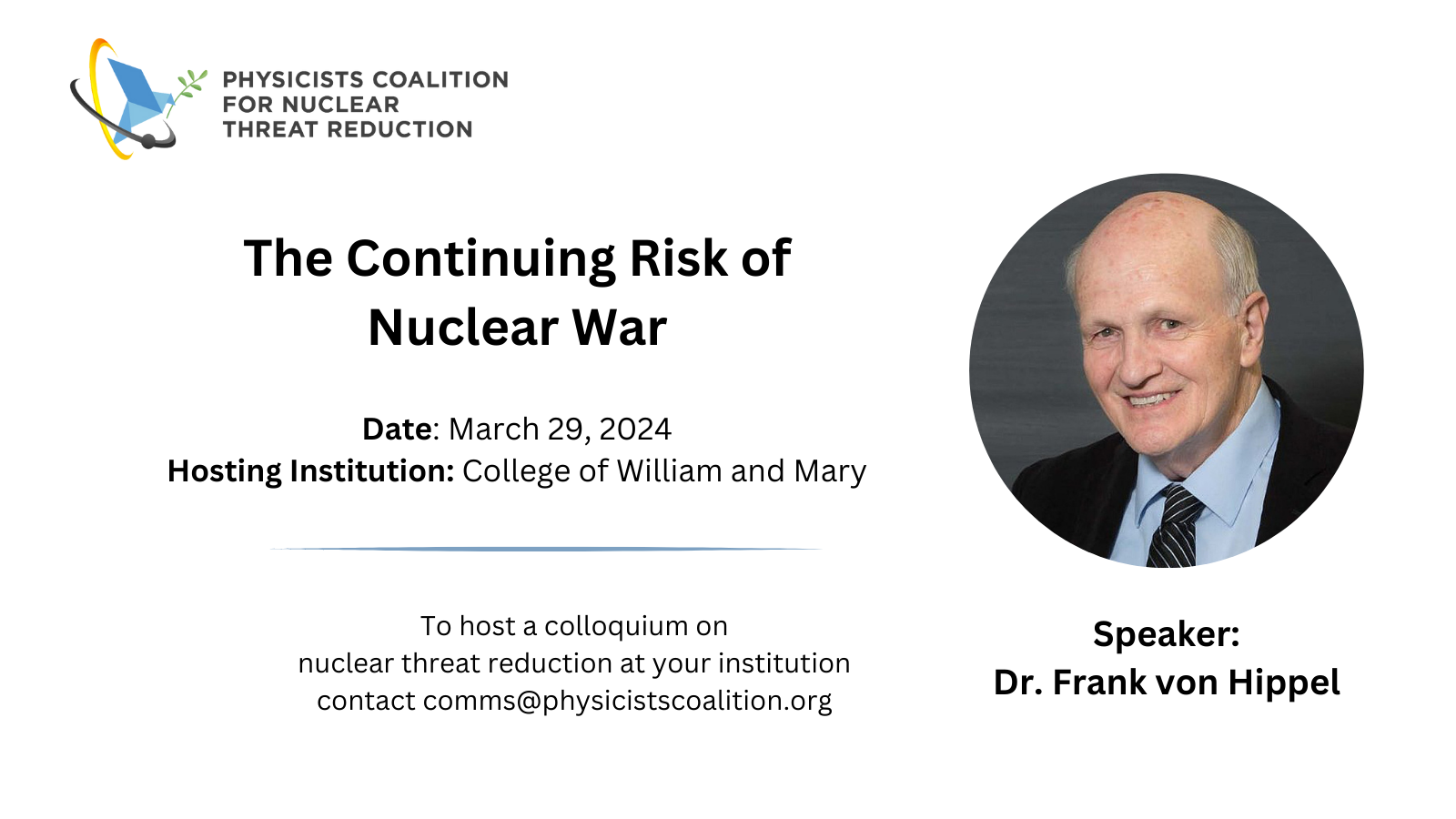
- This event has passed.
College of William and Mary – The Continuing Risk of Nuclear War

Abstract
With the end of the Cold War and the disintegration of the Soviet Union, the public, including most physicists, and Congress, assumed, the danger of a nuclear war had ended as well.Unfortunately, that has not been the case. Indeed, the danger of accidental nuclear war may be increasing. US and Russian strategic missiles remain in a launch-on-warning posture in an era when hackers have penetrated some of our supposedly most secure computer systems and China appears to be moving toward a similar posture. Both Russia and the United States have committed to hugely costly programs to replace their nuclear weapons with new systems designed to maintain that status quo for the remainder of the century. Meanwhile, an offense-defense nuclear arms race is developing between the US and China, which is building up the number of its nuclear weapons that can reach the US as the US increases the number of its ballistic missile interceptors – nominally to defend against North Korea.
In the past, independent physicists have played leading roles in informing Congress and the world about the dangers and offering ideas for how to reduce them – both unilaterally and through agreements with our adversaries. The American Physical Society has supported the Physicists Coalition for Nuclear Threat Reduction during its first two years to help renew the engagement of physicists and other physical scientists and engineers with Congress and the public on nuclear-weapons issues.
Following the colloquium, there will be a discussion of opportunities to contribute to this effort.
About the Speaker
Dr. Frank N. von Hippel, a theoretical particle physicist by training, is a Senior Research Physicist and Professor of Public and International Affairs emeritus at Princeton University. He co-founded Princeton’s Program on Science and Global Security, the International Panel on Fissile Materials, and the Physicist’s Coalition for Nuclear Threat Reduction. During the 1980s, he worked with Soviet physicists advising Mikhail Gorbachev on initiatives to end the nuclear arms race and the Cold War. During 1993-4, he worked in the White House Office of Science and Technology on nuclear policy issues including improving the security of Russia’s fissile materials, partnering with Russia on a global effort to convert research reactors from weapon-grade to low-enriched uranium fuel, and disposing of the plutonium from excess Cold War warheads.
